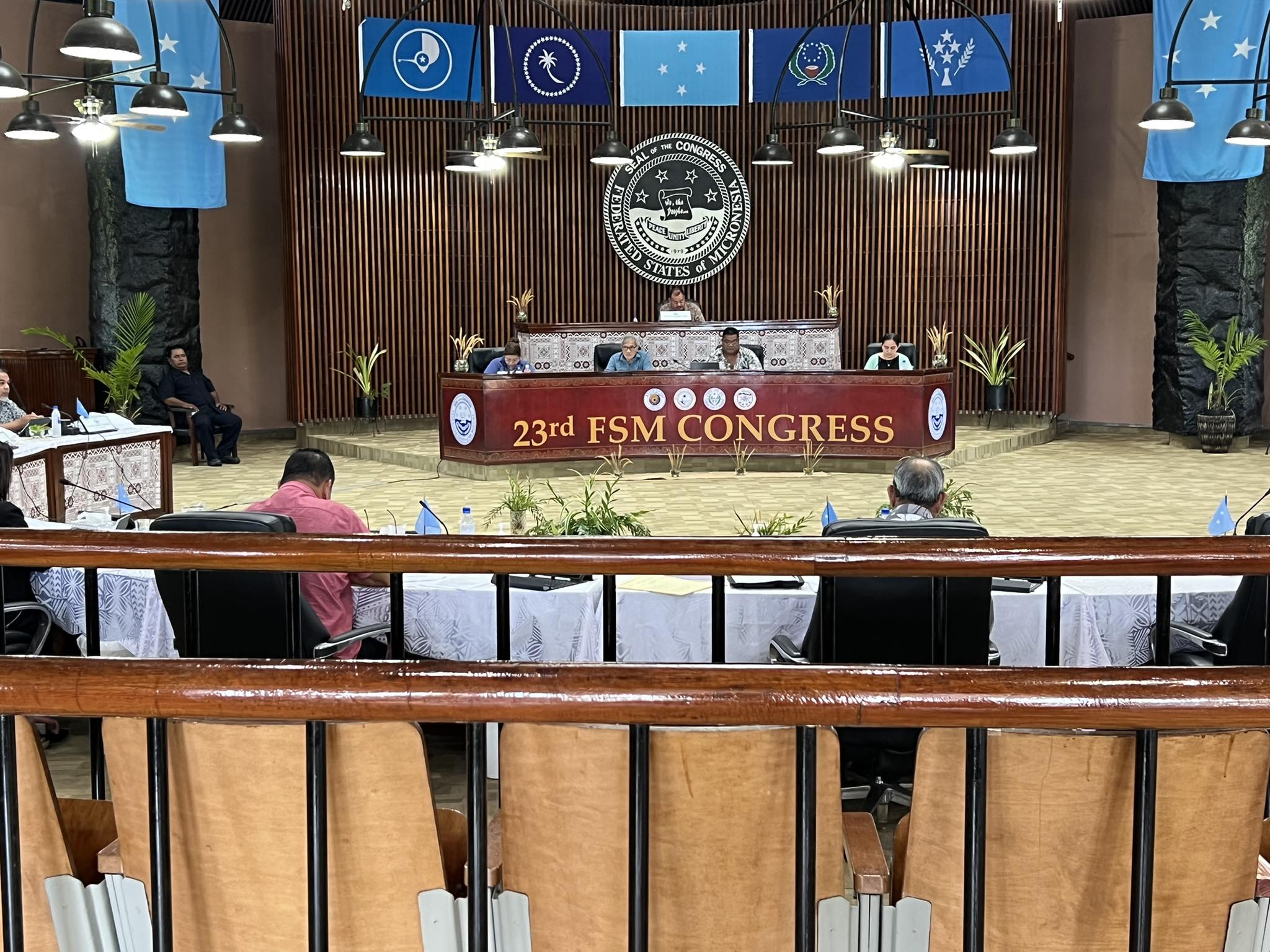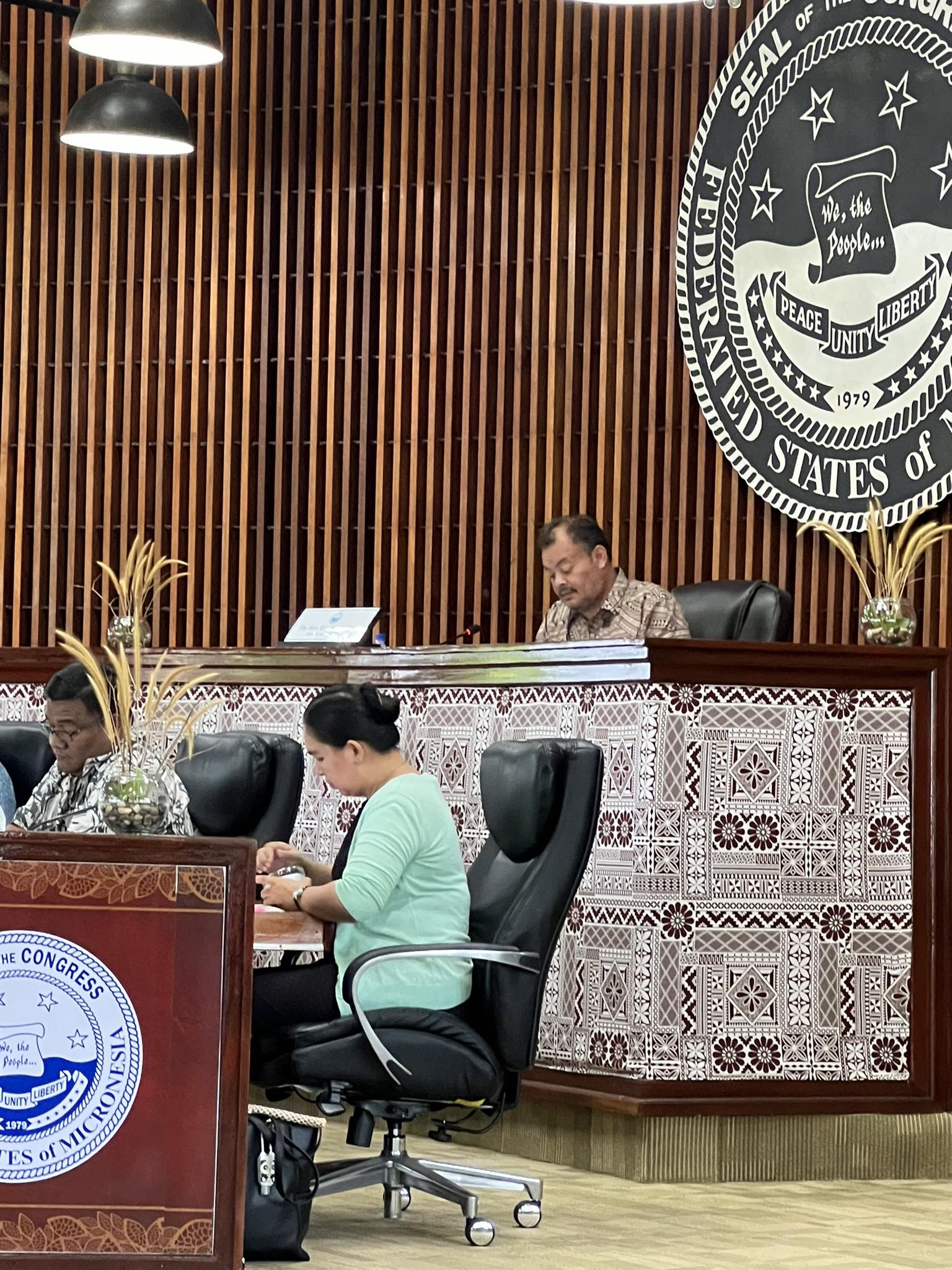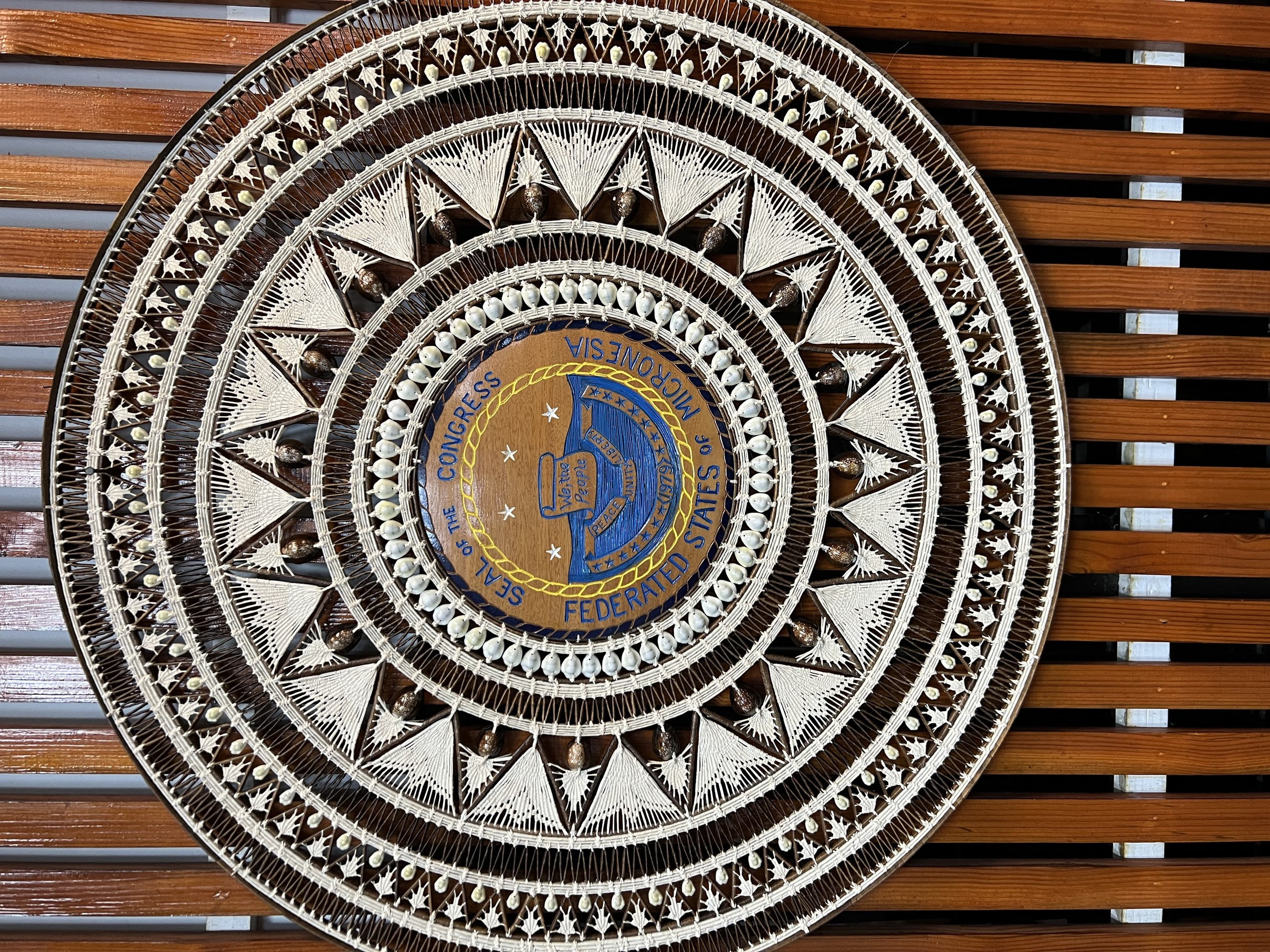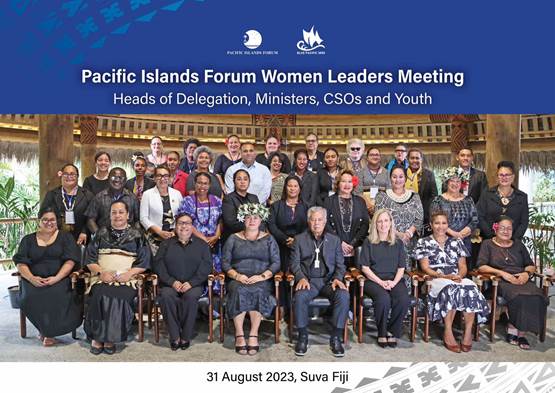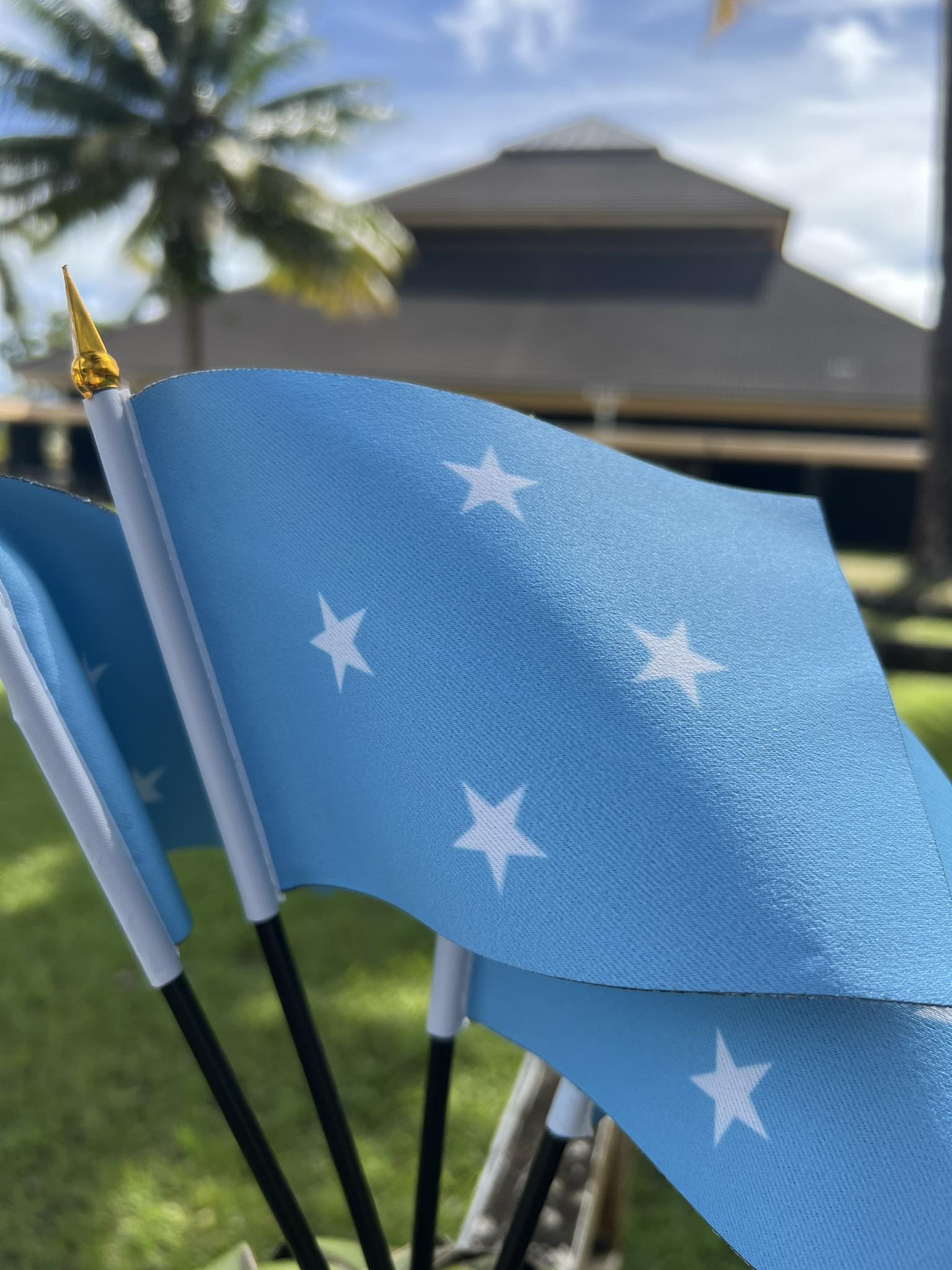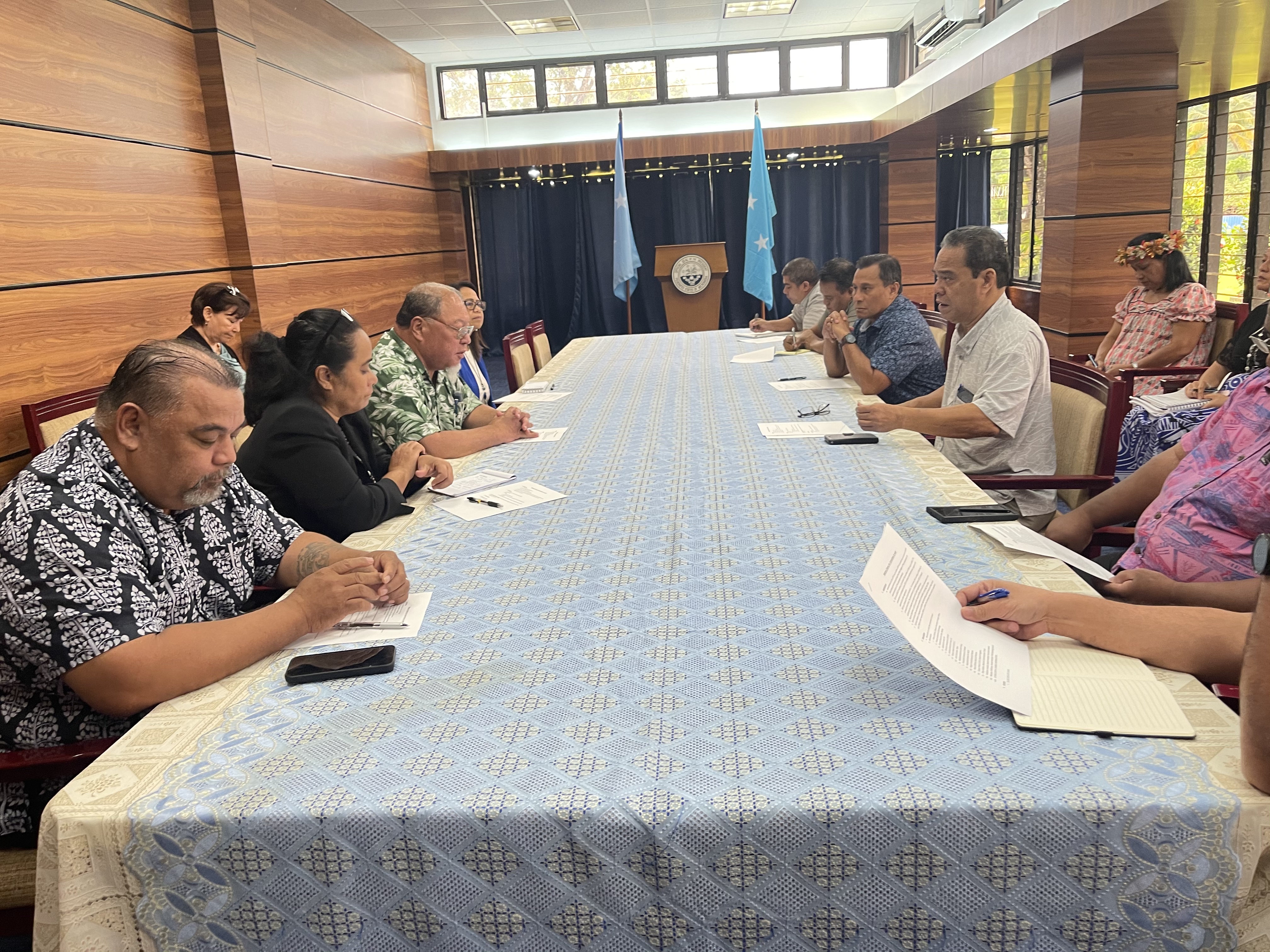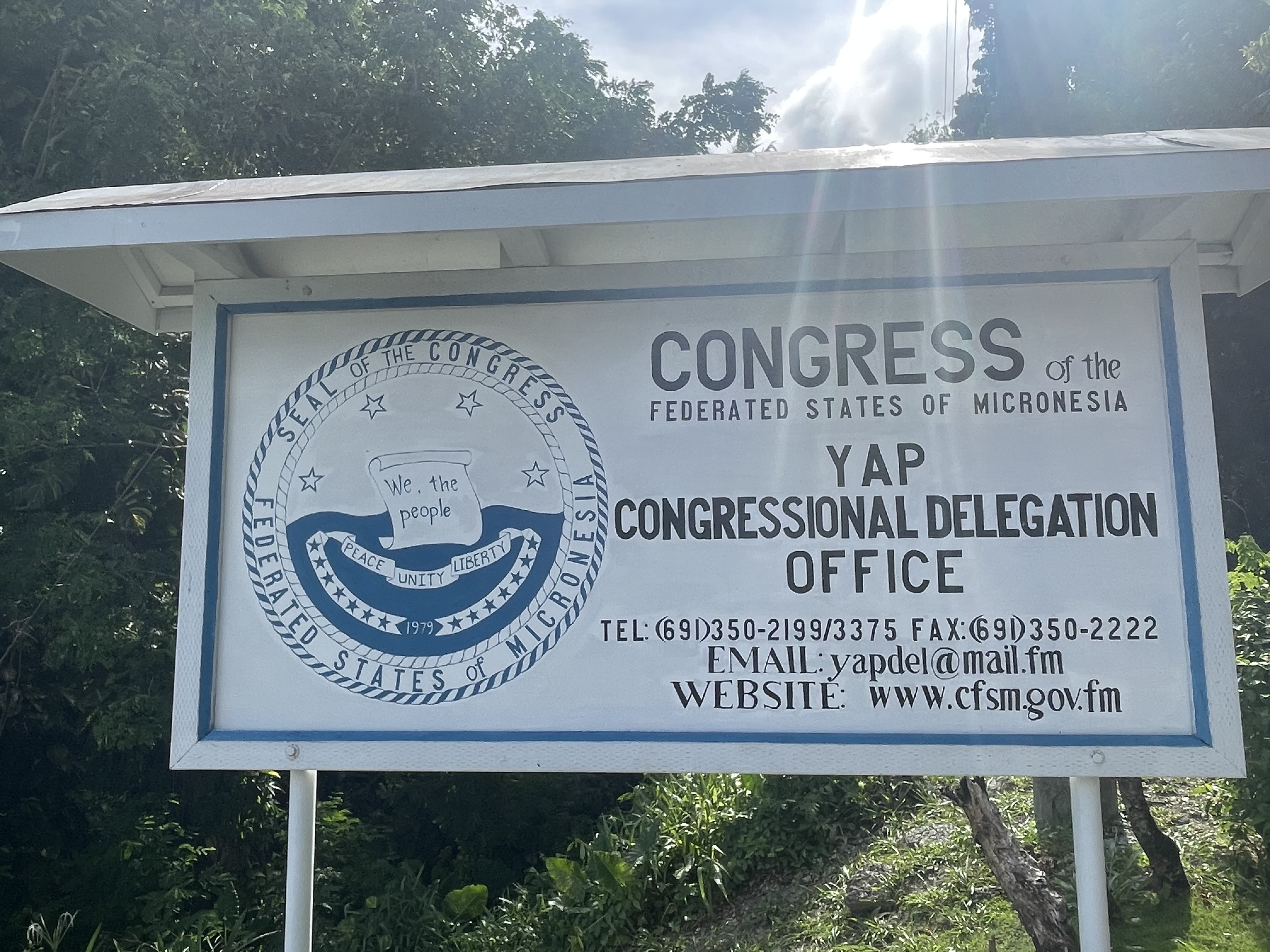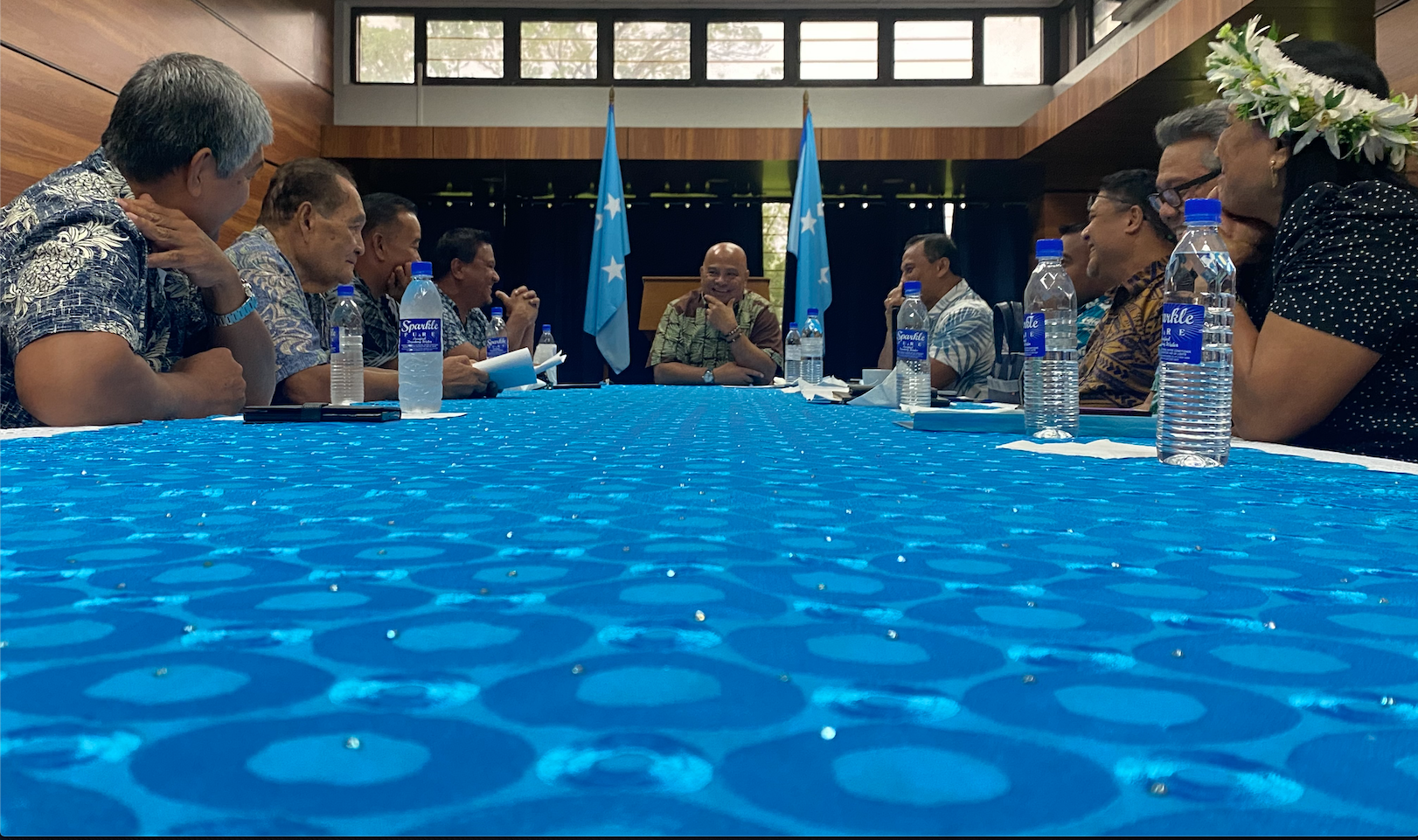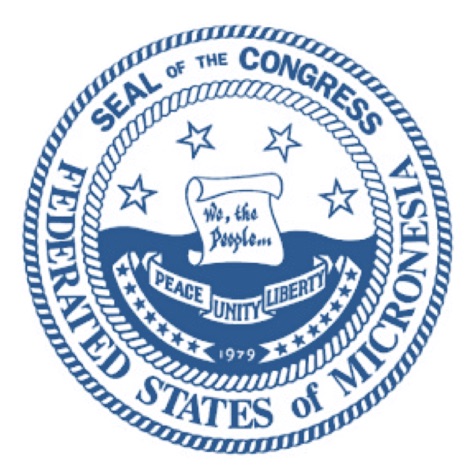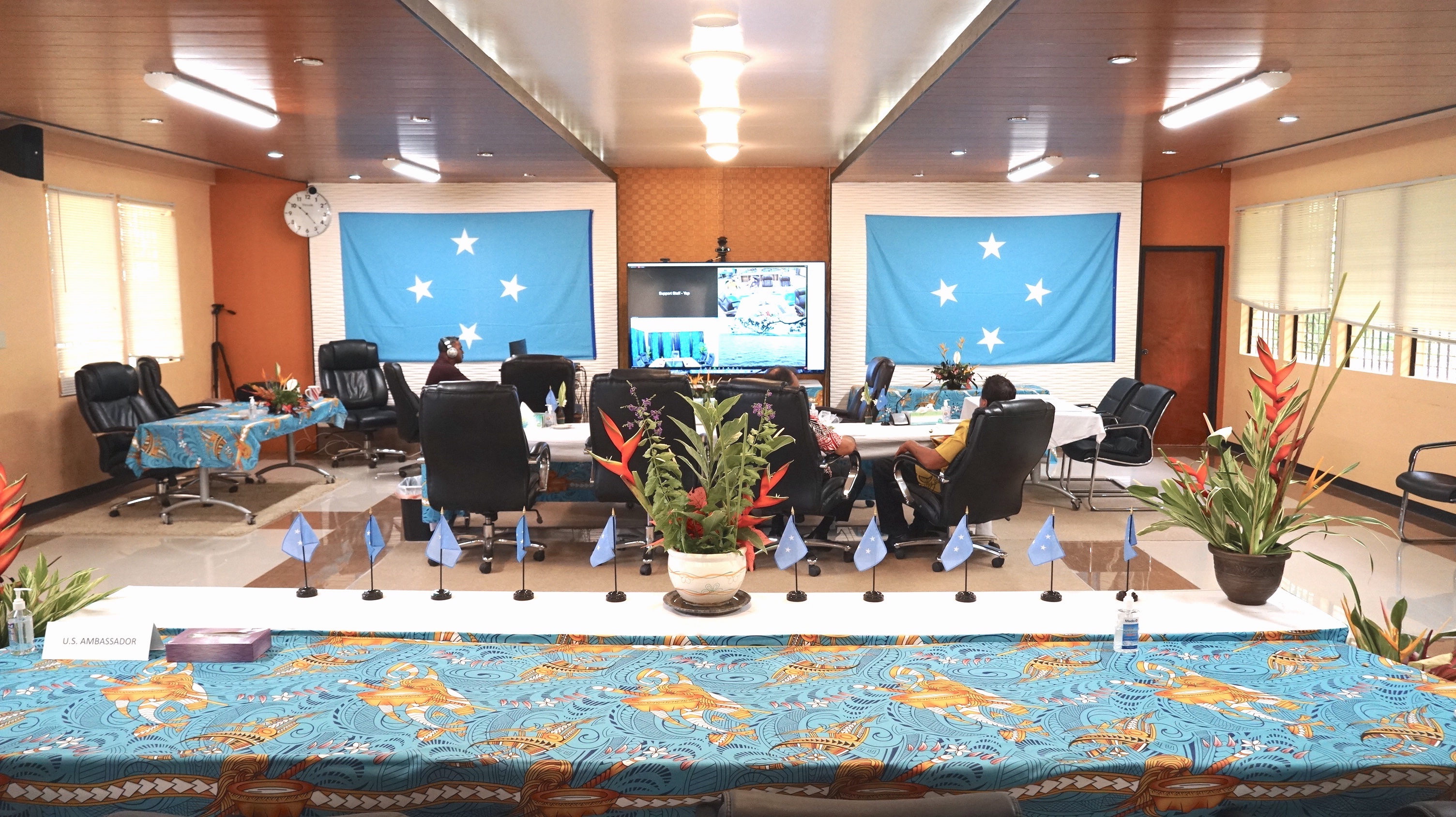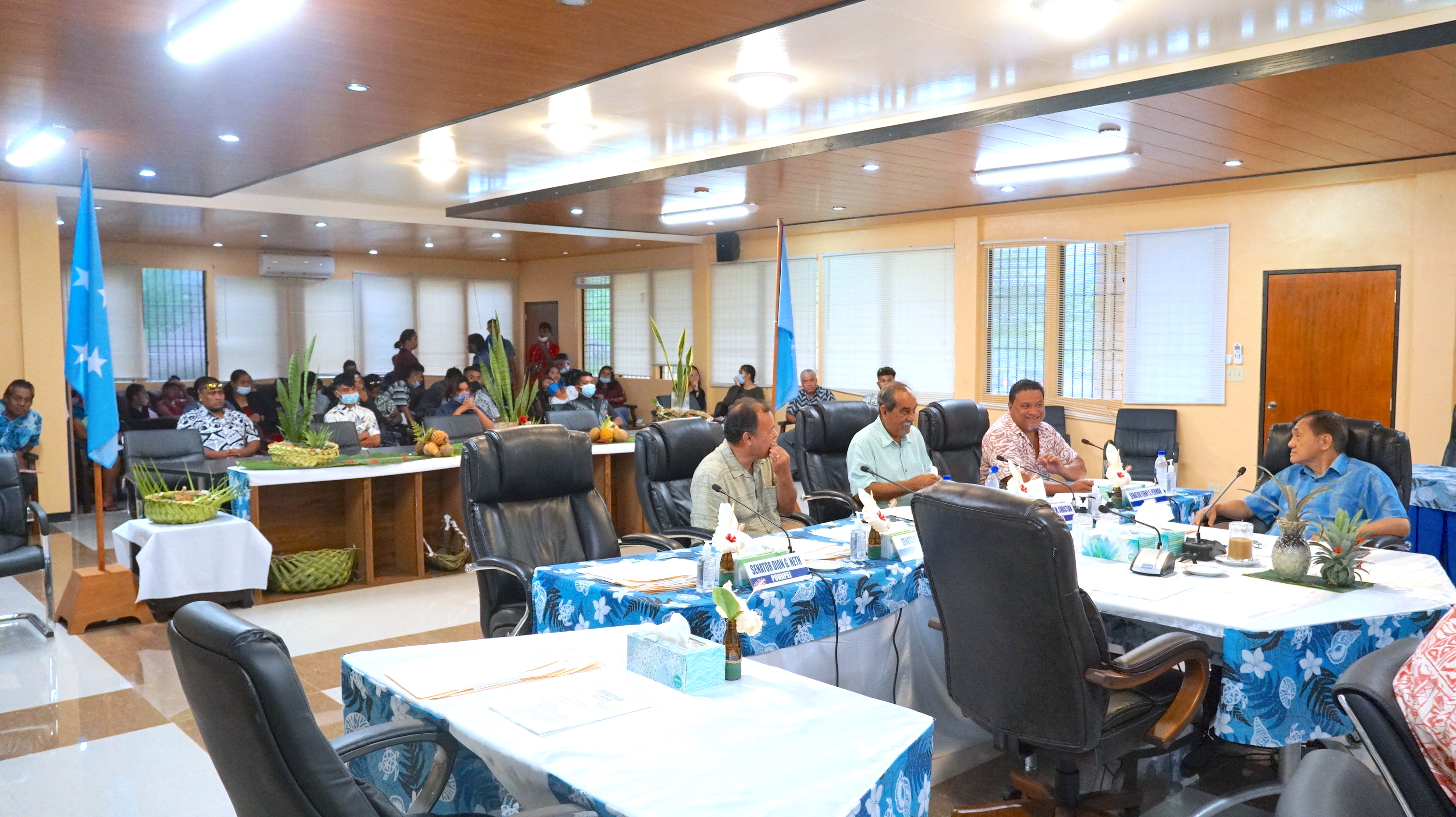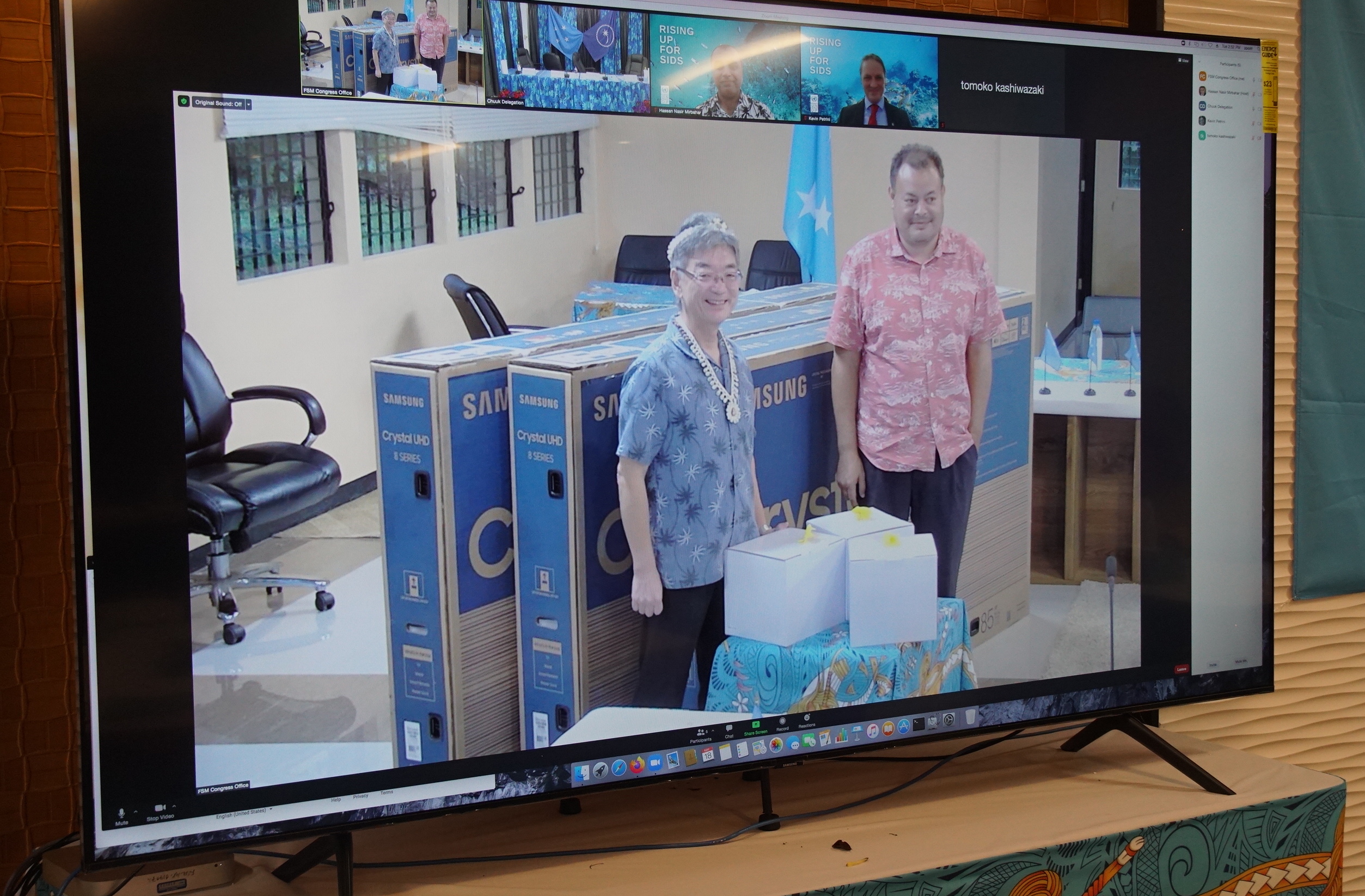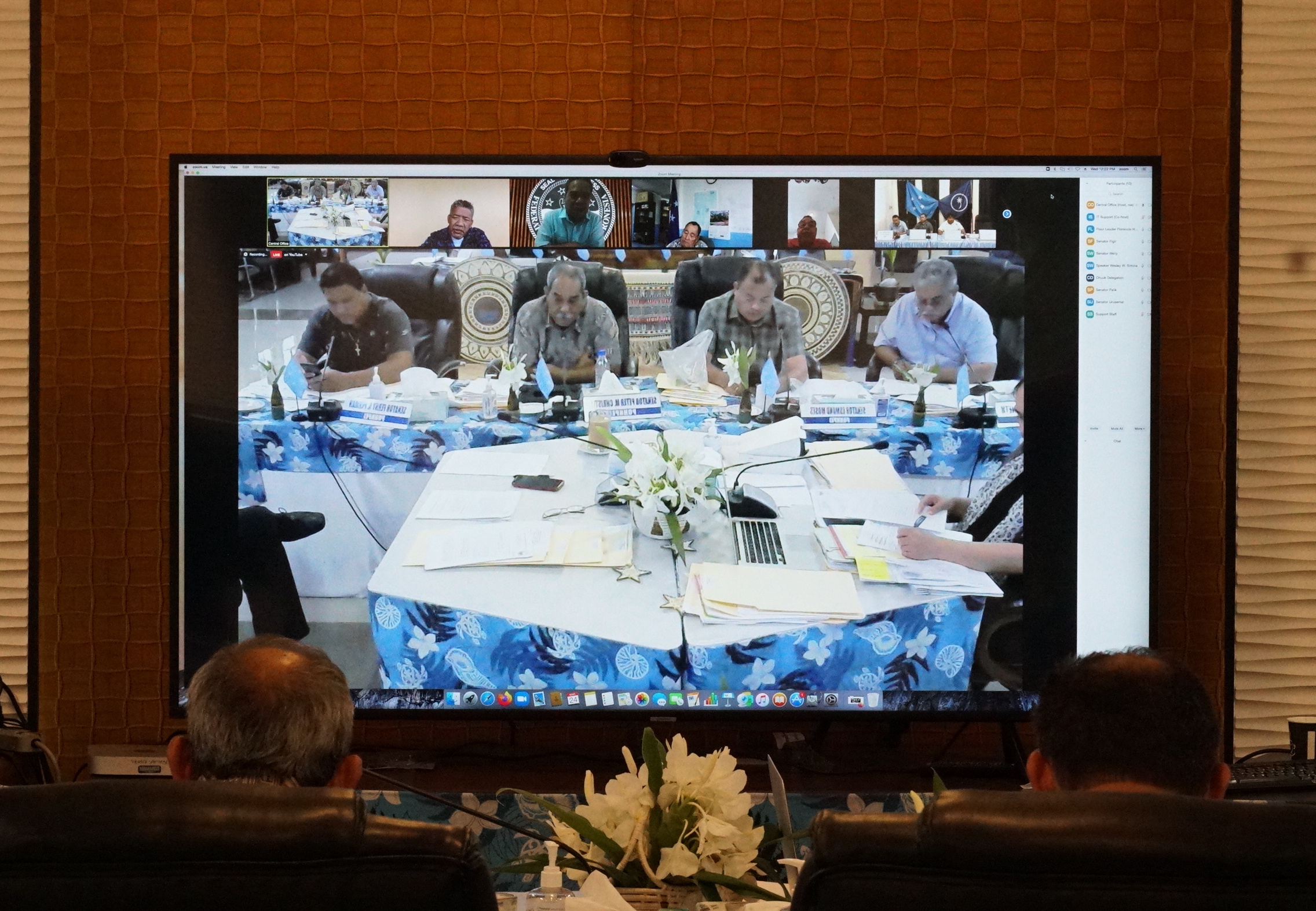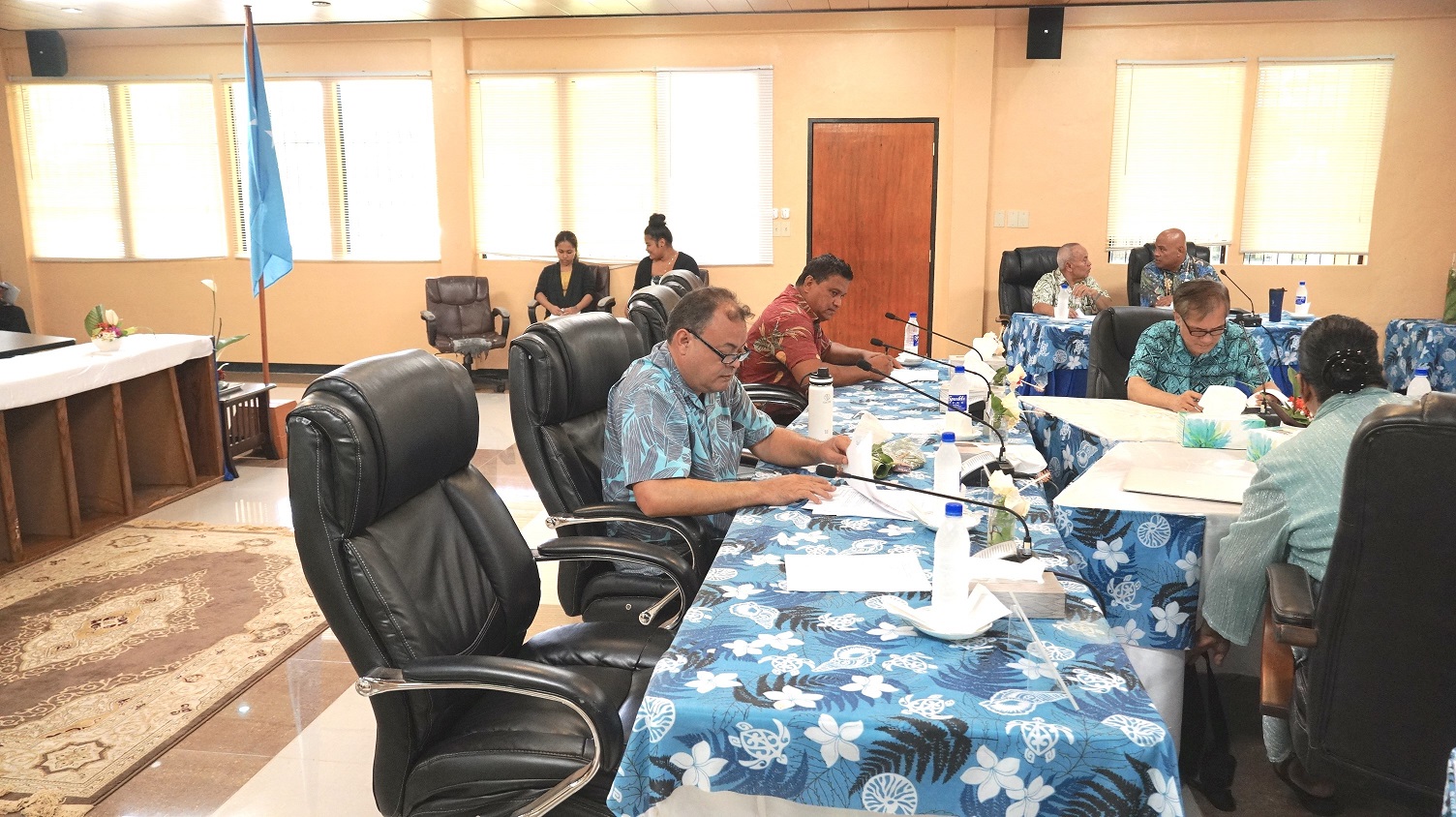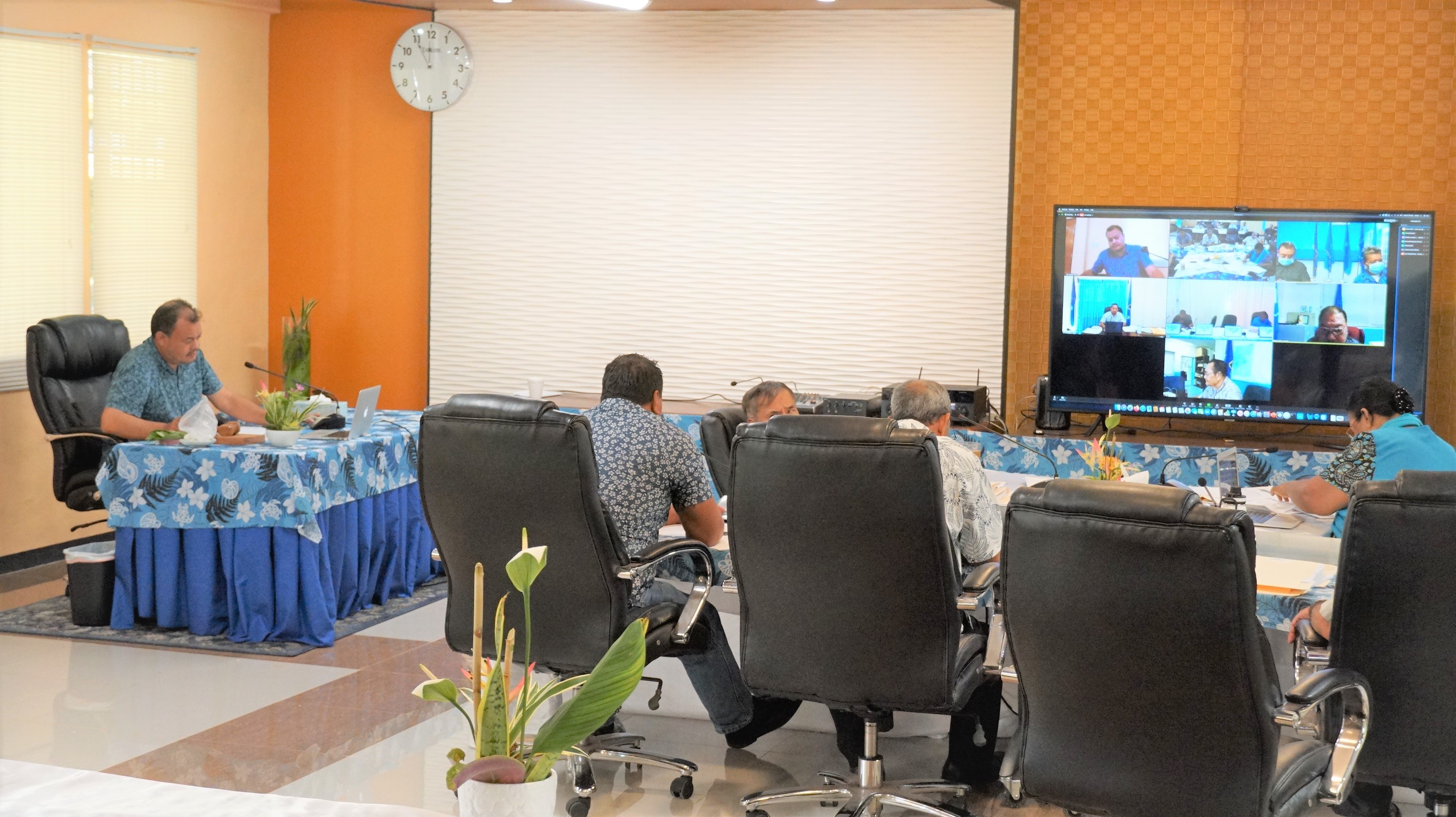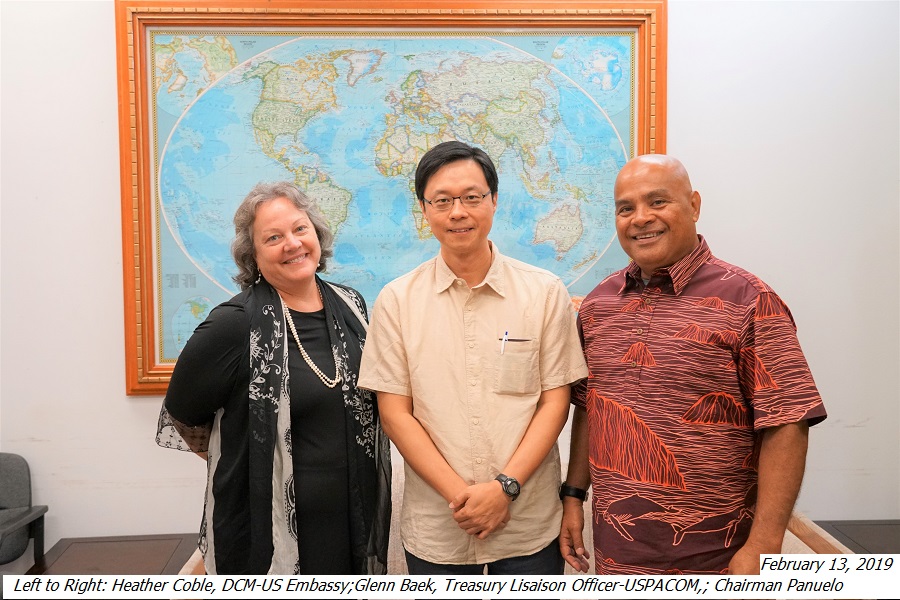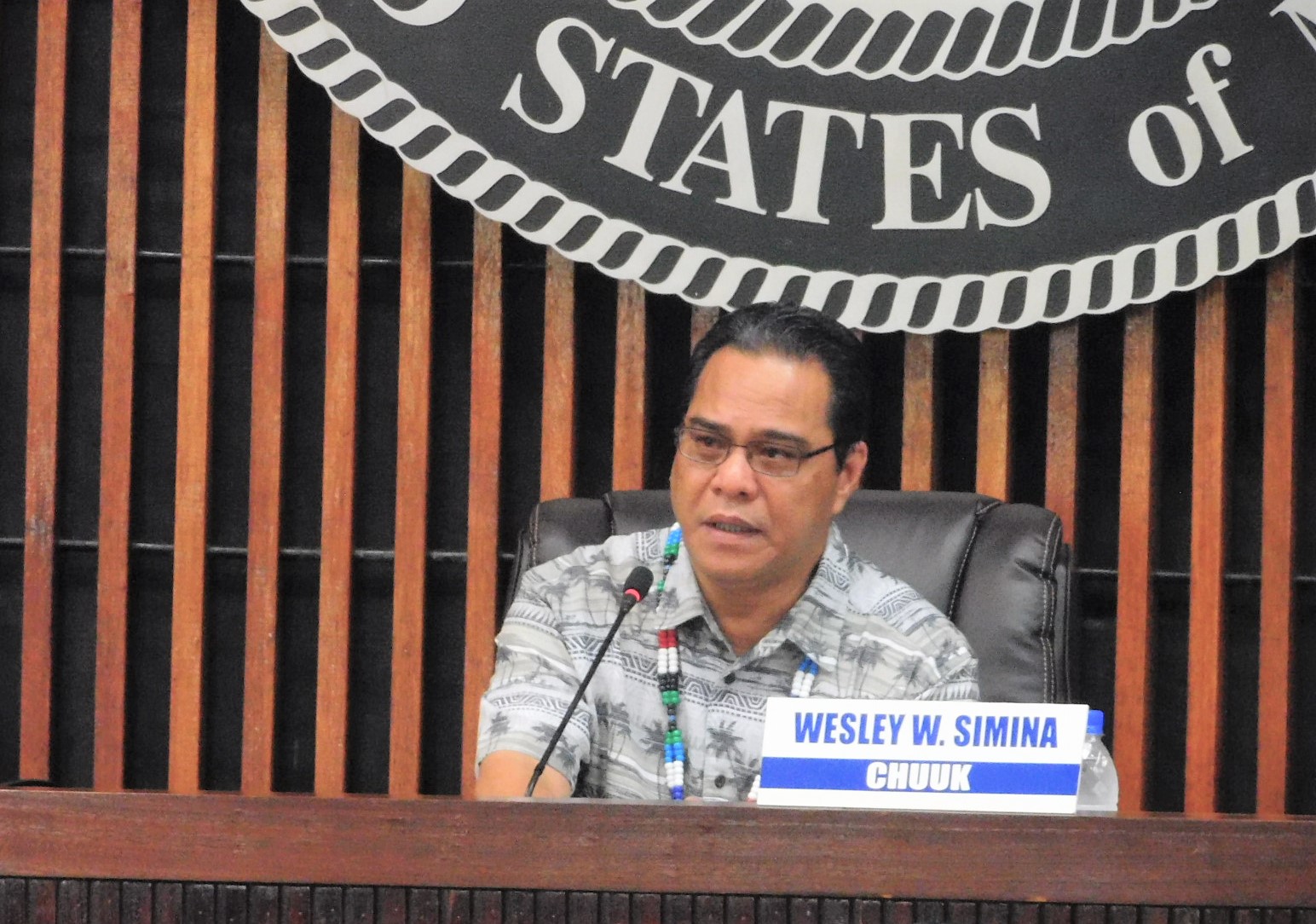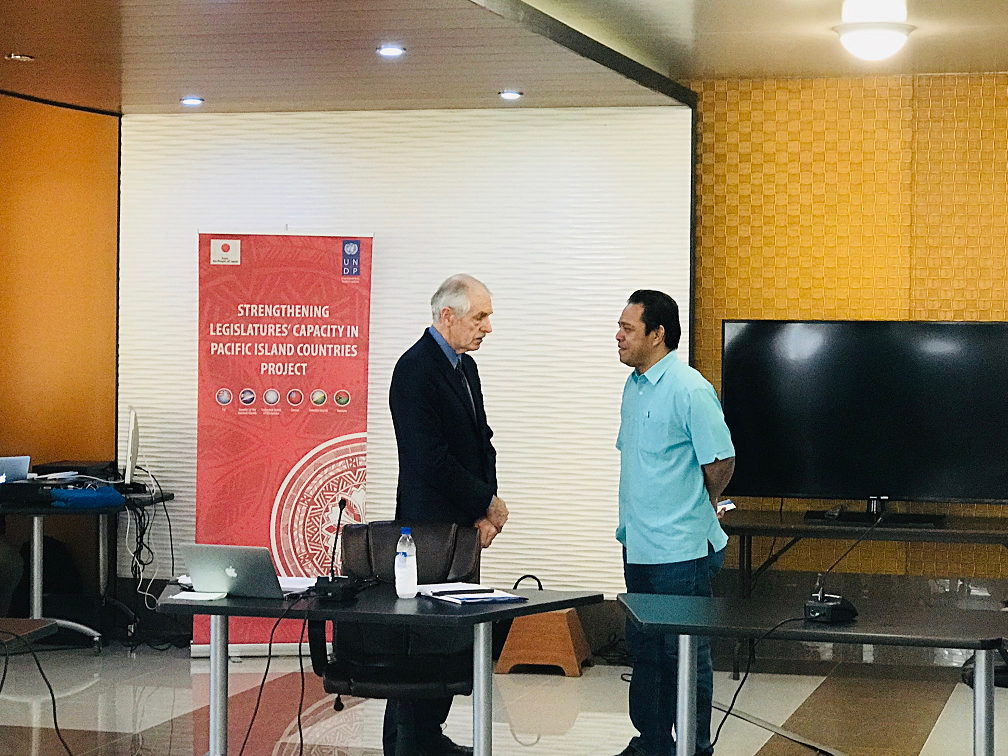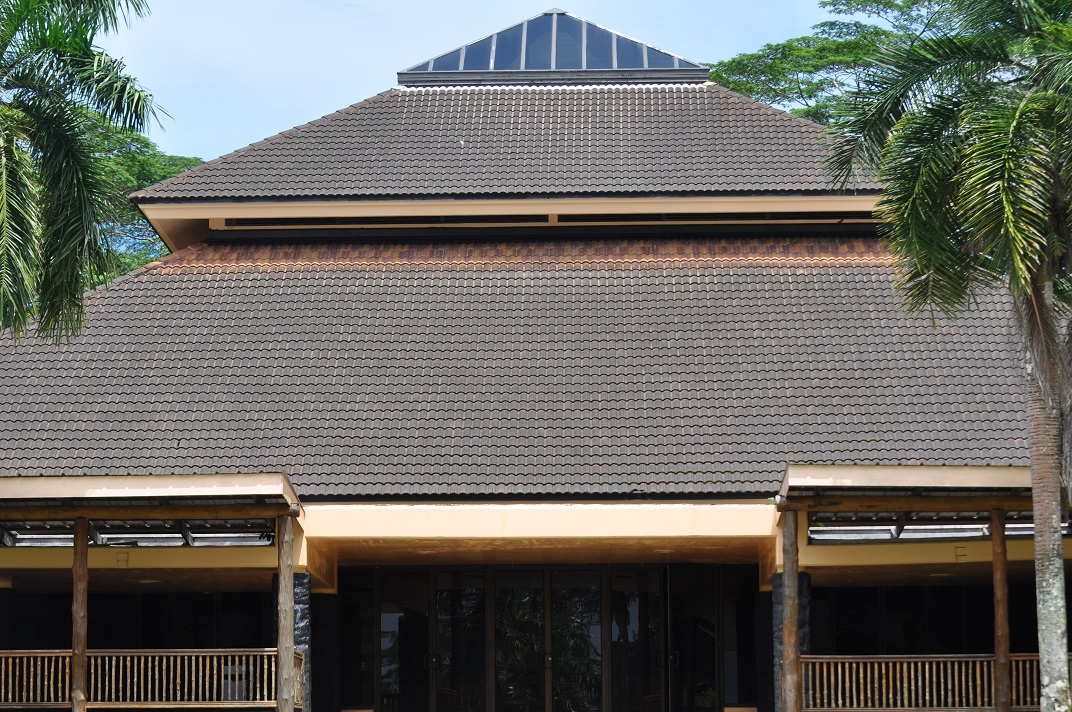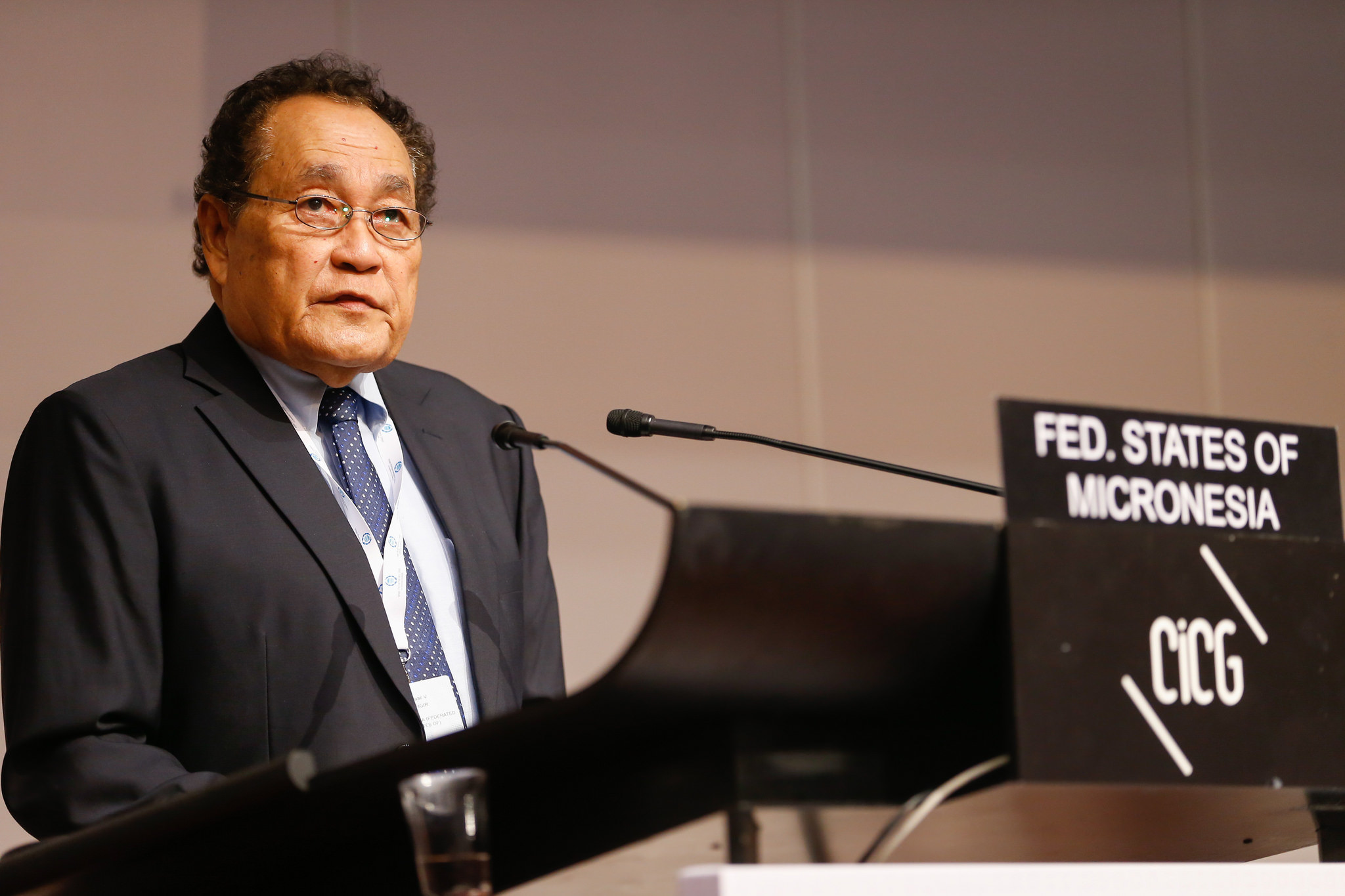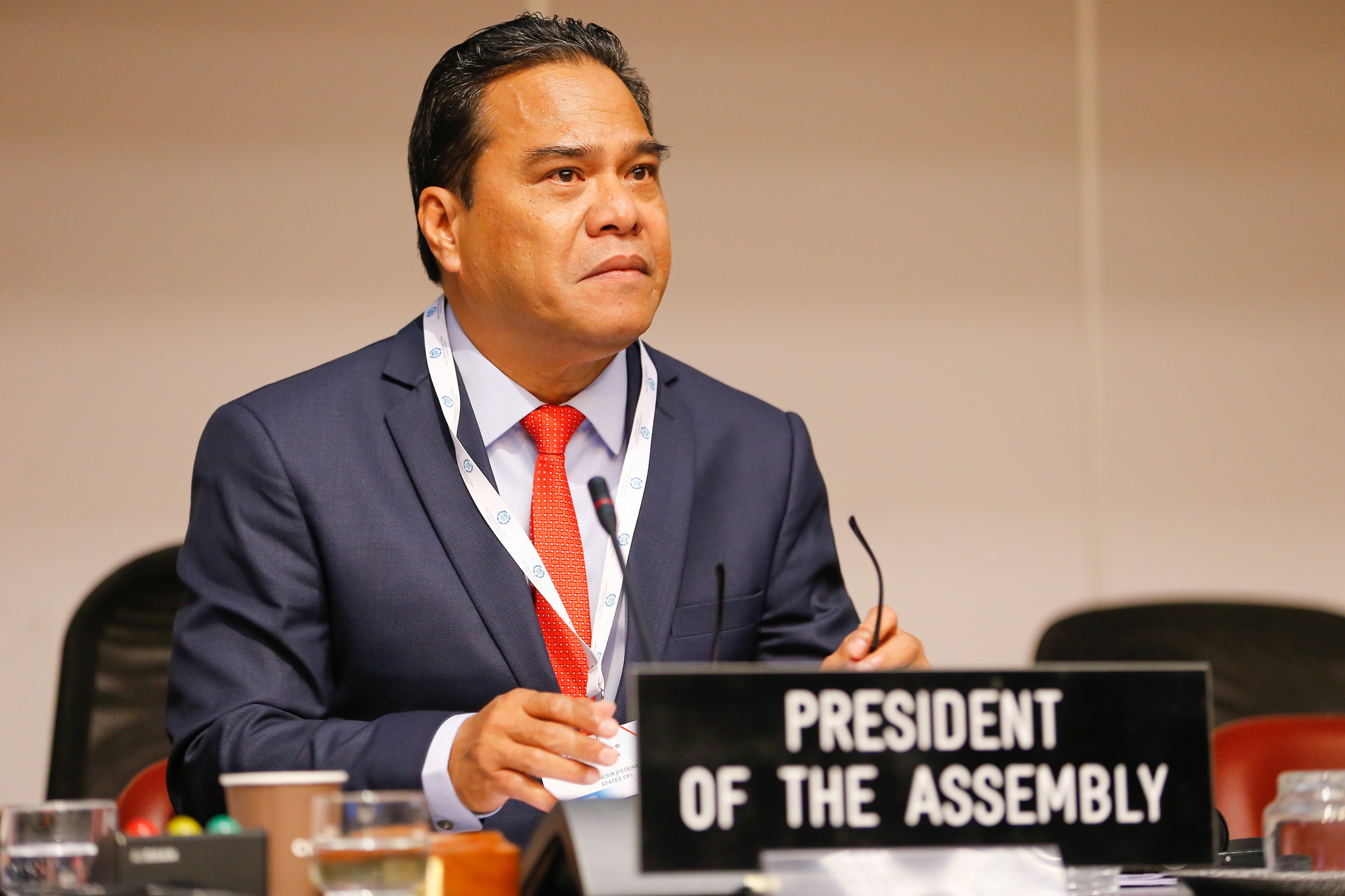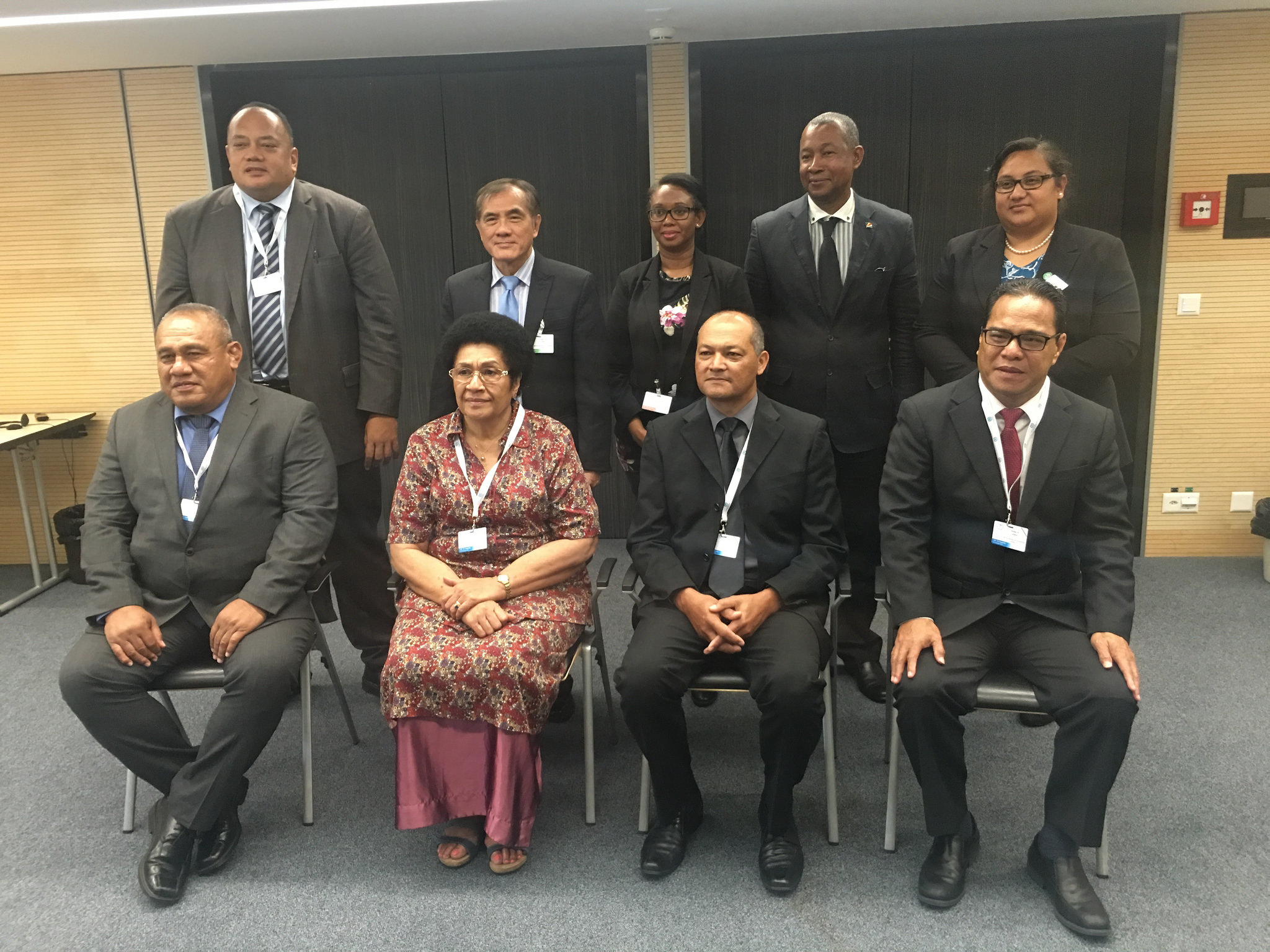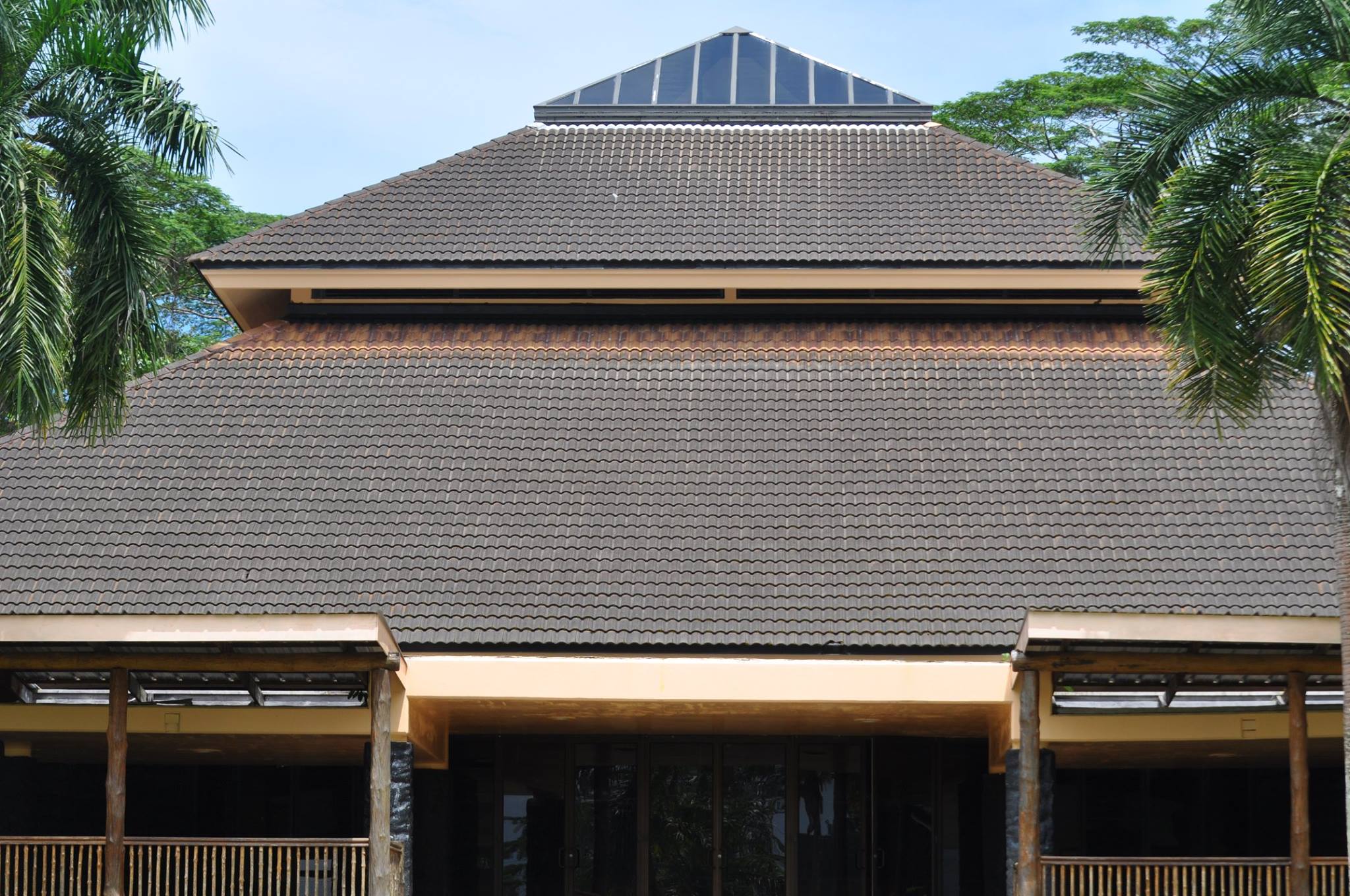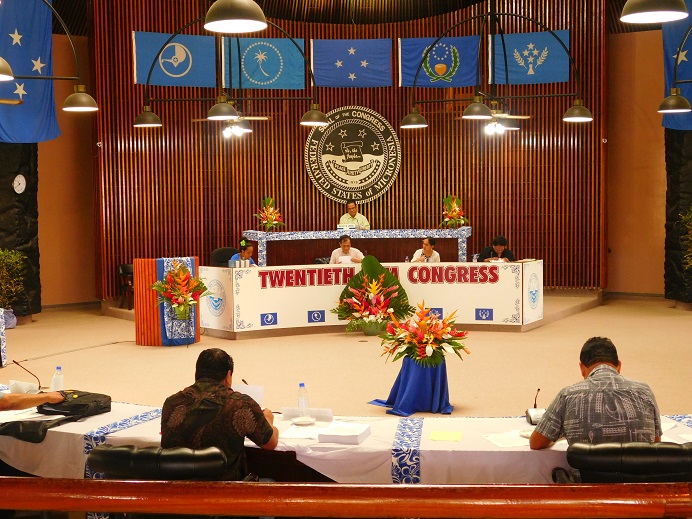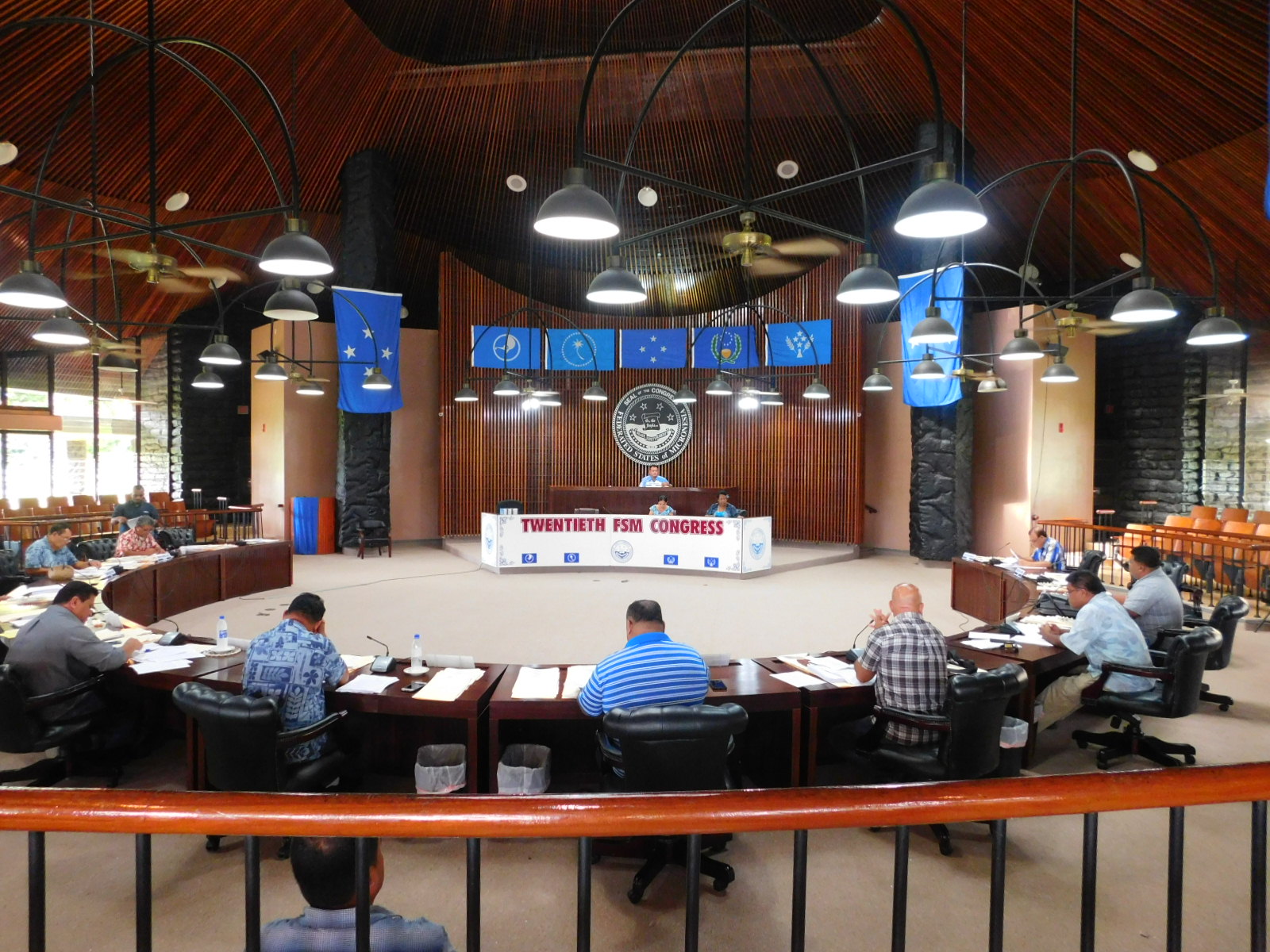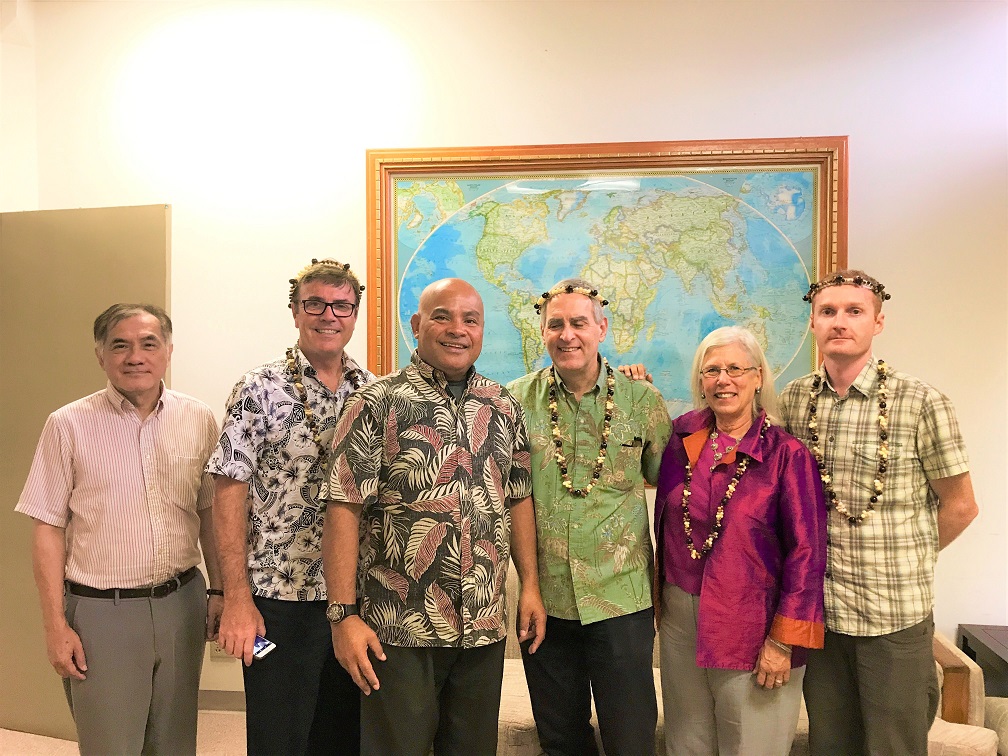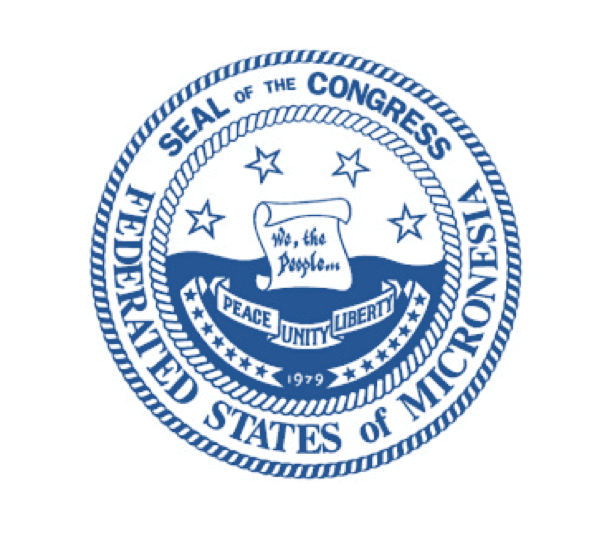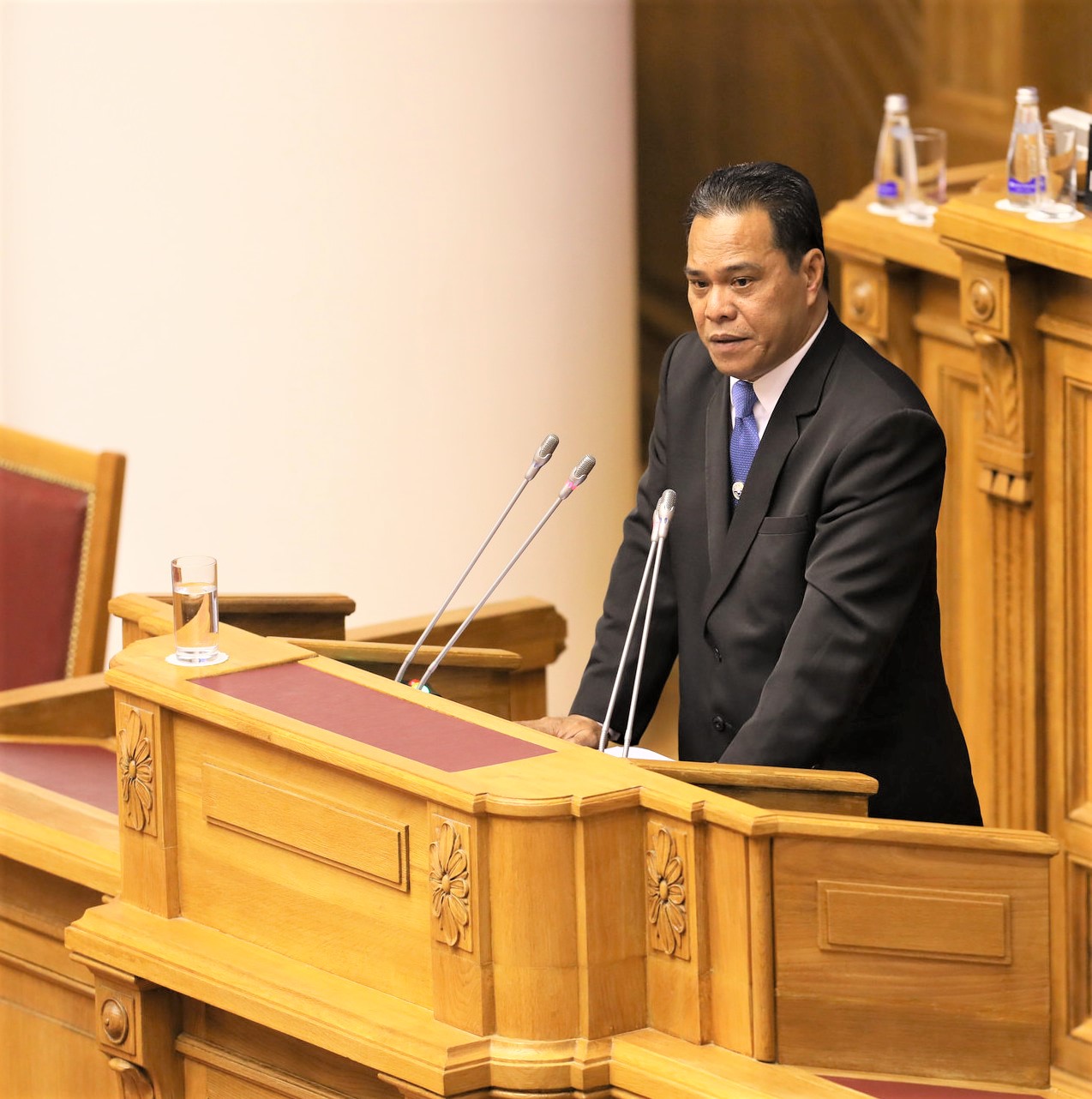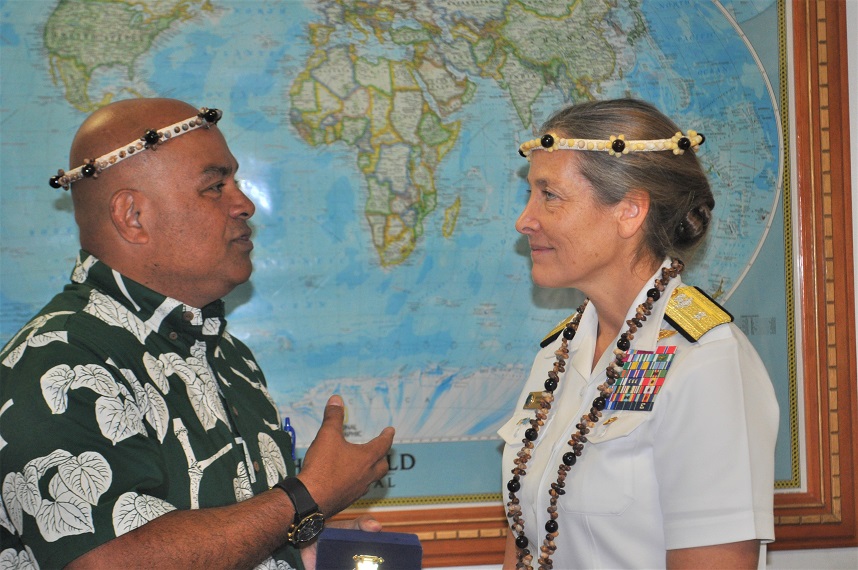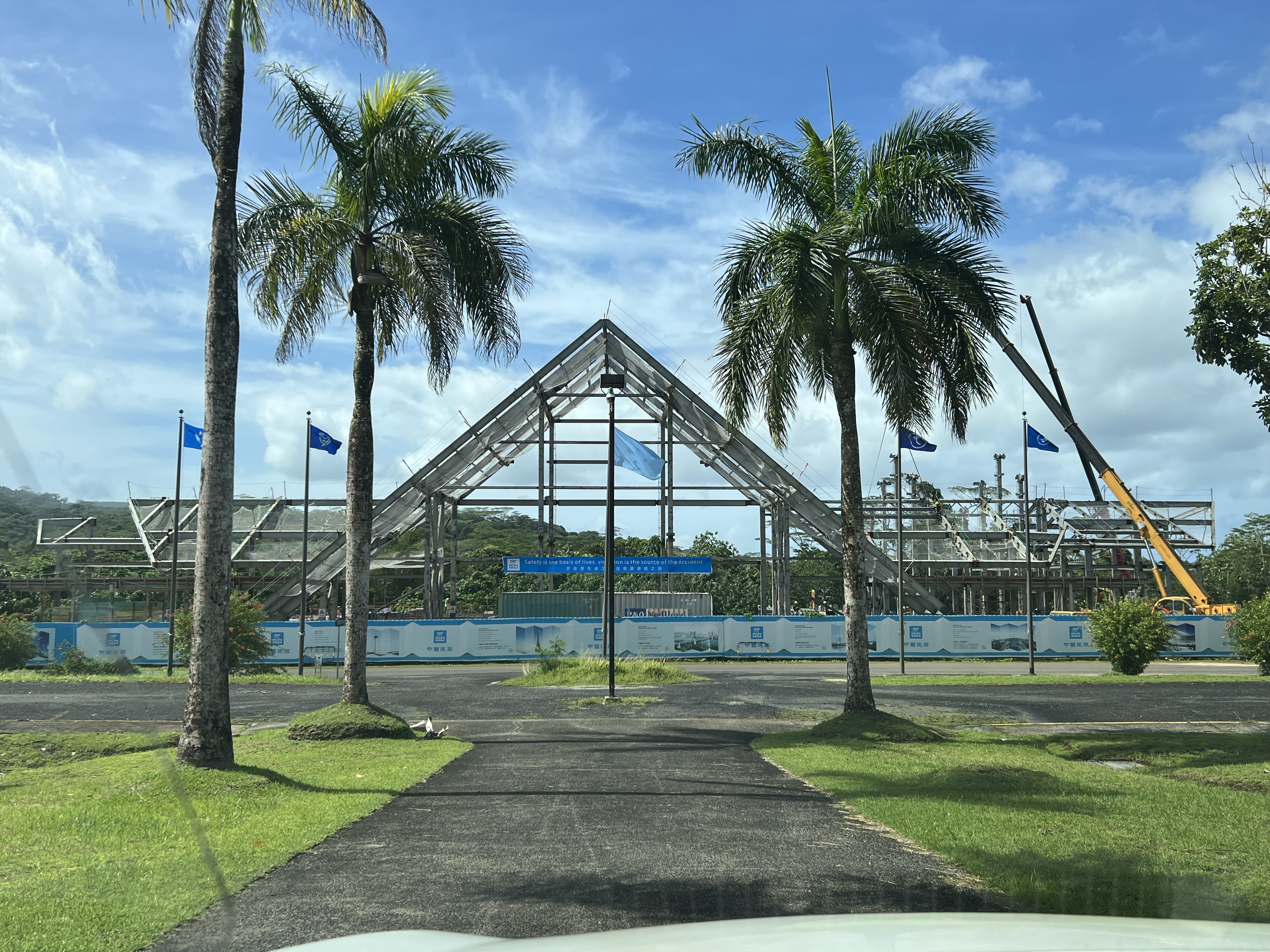 POHNPEI, PALIKIR. April 05, 2024- The Second SpecialSession of the 23rdCongress of the Federated States of Micronesia convened on April 2, 2024,as set by Speaker Esmond B. Moses, to address the extension of the President’s Emergency Declaration in regards to El Nino; FY25 Recommended Budget; FY24 Supplemental Budget; a planned Midwest Consulate; along with pending nominations and legislations among others.
POHNPEI, PALIKIR. April 05, 2024- The Second SpecialSession of the 23rdCongress of the Federated States of Micronesia convened on April 2, 2024,as set by Speaker Esmond B. Moses, to address the extension of the President’s Emergency Declaration in regards to El Nino; FY25 Recommended Budget; FY24 Supplemental Budget; a planned Midwest Consulate; along with pending nominations and legislations among others.
Following the morning’s formalities to convene a sessionand the administration of Oath of Office, the Speaker appointed Senator Merlynn Abello-Alfonsoto head the Committee to Wait on the President with members comprised of Vice Speaker Robson U. Romolow, SenatorIsaac V. Figir and Senator Yoslyn G. Sigrah.
President Wesley W. Simina opened the meeting by highlighting his wish to extend the Emergency Declaration due to the ongoing increasing state of drought in the Nation. The President shared that three of the states (Chuuk, Pohnpei and Yap) have also declared emergency and expressed gratitude for the initial $500,000 appropriated into the Disaster Relief fund in January 2024. With said funds completely expended, the President shared that various funds were shifted into the Disaster Relief, specifically the $1.2 million appropriated for the Supreme Court Annex Building.
Vice President Aren B. Palik raised the National Budget as the next agenda item: First was the Fiscal Year 2025, which the he shared with the Committee was delayed from the deadline of April 1 due to the implementation of the 2023 Compact and sector grant funding and promised its submission to the Congress by April 2. The Vice President requested the Congress to reconsider the National Government’s share of the distribution formula of the Compact and Sector Grant Funding from 10% to 8%.
The second item was the FY-24 supplemental budget, which the Vice President expressed that the administration understands now more than ever the need for fiscal prudence with every budget item request scrutinized. With the individual states having more sources to rely on, responsibilities and functions will have to be transitioned to the individual states. The current personnel policy is to keep all approved positions including those that are vacant, all contractual services will be scrutinized to transition to the Public Service System, hiring and pay increases suspended for FY25, all travel will be cut by 50% to FY19 levels with essential travel to be approved to achieve departmental goals leaving virtual attendance to be the new norm. The Vice President also added that the annual performance reviews for National Government Employees have been resumed. For fixed assets, no vehicles will be procured unless necessary.
The Vice President reported to the Committee that the FY24 Supplemental Budget will be submitted on a late date and will be based on the availability of Compact Sector Grant funding, and that the amount shown on the revenue projections reflects the proposed 8% share of the National Government despite the 10% current formula. The Committee inquired on whether JEMCO has approved the funds and grants received. The President responded that the requests usually take 4-6 weeks for approval. The Committee expressed its concerns that such a delay could pose significant funding issues for departments relying on those funds for operations. The President recognized the Committee’s concerns but pointed out that it may be best to wait on JEMCO’s approval.
On the issue of a new consulate office in the Midwest, the President felt it necessitated a Midwest Office to cater to the Nation’s citizens who reside in the Midwest than to travel to the East or West Coast for assistance and seeks Congress’s approval to fund the new Consulate Office.
The President then continued with items for consideration by the Congress, which aside from the pending nominations included the following:
1. 8% sharing of Compact Sector Funds; 2. Decentralization of PMU; 3. JEMCO Bill; 4. Special Needs Distribution and a Resiliency Distribution from the Compact Trust Fund; 5. Repurposed use of $2 million emergency loan program; 6. Marine Spatial Planning; 7. Non-communicable disease Bill; 8. Blue Prosperity; 9. Enabling Legislations for Constitutional Amendments; among others.
The President concluded the meeting and thanked the Members of the Committee to Wait with members of the Committee thanking the President, on behalf of Congress, and stated that the Committee would share the President’s agenda with the Congress. The meeting concluded with mutual agreement to move forward on the above issues in a timely and cooperative manner
* * *

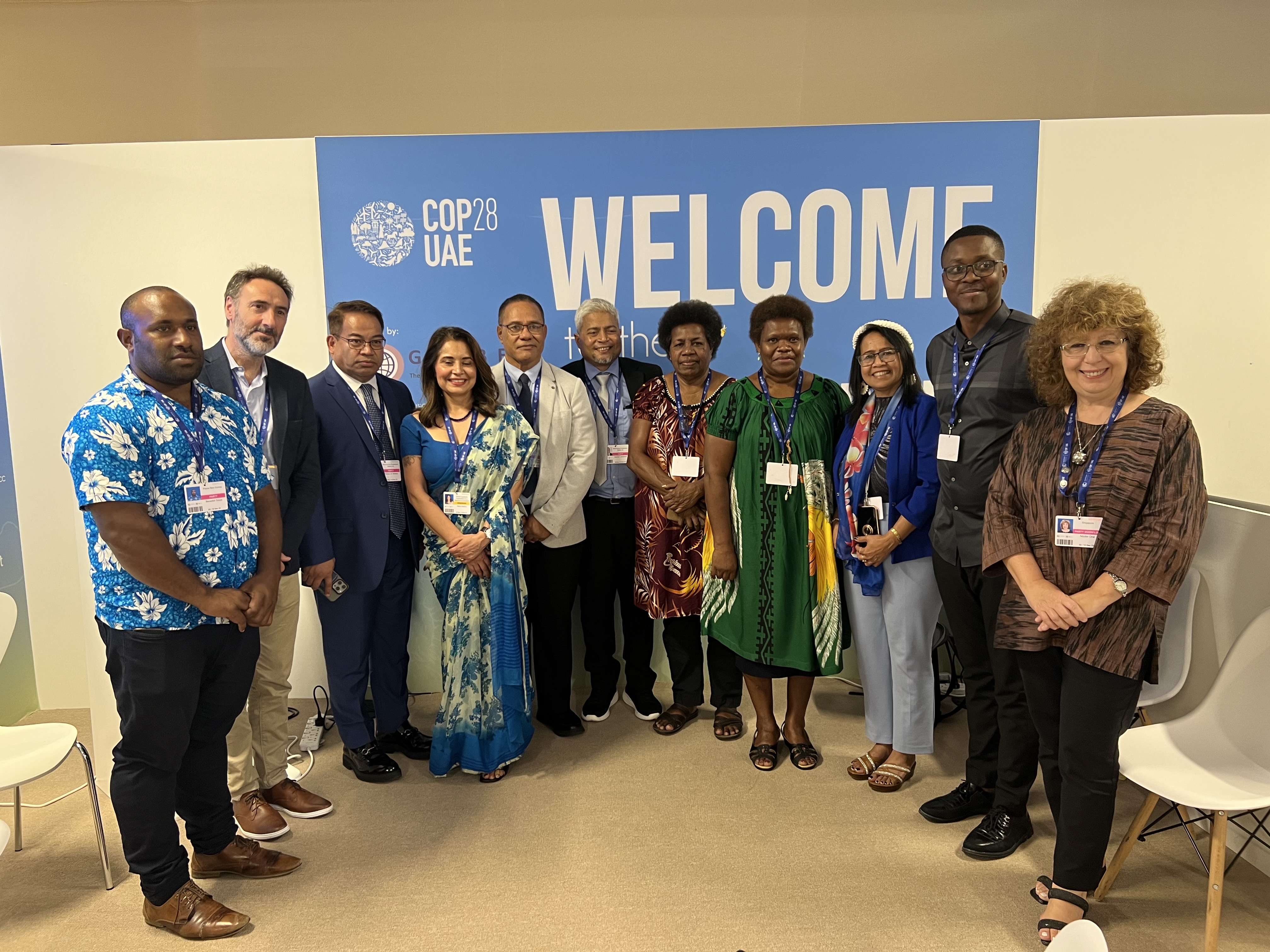
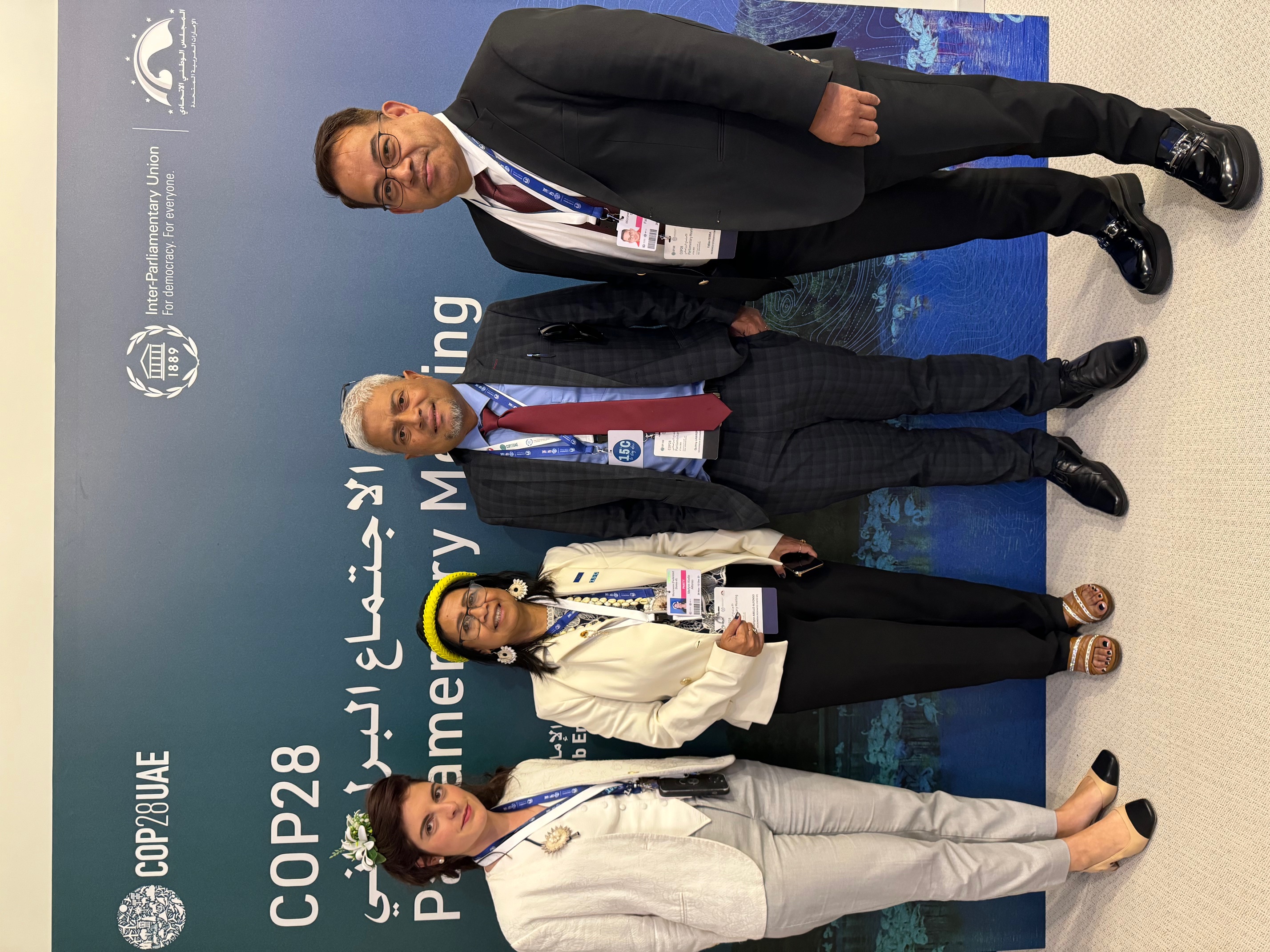
.jpg)
